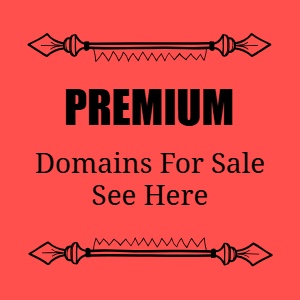
Your domain name could be worth thousands more than you think, especially in today's digital-first economy. If you're considering selling your domain through an auction, you'll need to navigate multiple essential decisions that can greatly impact your final sale price. From choosing the right platform to setting strategic pricing and crafting an appealing listing, each step requires careful consideration. Let's explore how you can maximize your domain's value in the competitive auction marketplace.
Key Takeaways
- Research comparable domain sales and use appraisal tools to determine a realistic market value for your domain.
- Choose an established domain auction platform that matches your domain's niche and value proposition.
- Set competitive reserve and buy-now prices based on market research to protect investment while attracting buyers.
- Create a detailed listing that highlights domain benefits, keywords, metrics, and potential use cases.
- Promote your auction across multiple channels, including social media and domain investor communities, to maximize visibility.
Evaluating Your Domain's Market Value

Domain valuation serves as the essential first step before listing your digital asset for auction. Start by researching recent sales of comparable domains using specialized platforms like NameBio or DN Journal. These tools help you gauge the current market trends and set realistic price expectations.
Focus on evaluating demand for your domain's keywords or industry niche by analyzing search volumes and commercial intent. Consider factors like the domain's length, memorability, and extension type (.com domains typically command higher values). You'll want to conduct thorough competition analysis, examining similar domains that have sold successfully.
Don't overlook key metrics such as brandability, age of the domain, and existing traffic. Use domain appraisal tools, but remember they're just guidelines. Your domain's true value ultimately depends on what buyers are willing to pay in the current market. Implementing two-factor authentication during the valuation and auction process helps prevent domain theft and ensures secure transactions.
Selecting the Right Auction Platform
Where you choose to list your domain can greatly impact its final sale price and visibility to potential buyers. A thorough auction platform comparison will help you identify the marketplace that best suits your domain's niche and value proposition. Consider conducting an auction fees analysis to maximize your profit margin while ensuring maximum exposure to qualified buyers. Ensure your chosen platform offers WHOIS privacy protection to safeguard your personal information during the auction process.
- GoDaddy Auctions offers high traffic and name recognition but charges premium fees
- Sedo provides access to international buyers and supports multiple currencies
- Flippa specializes in established websites and attracts business-focused buyers
- NameJet caters to premium domains and maintains a database of pre-qualified bidders
Select a platform that aligns with your domain's characteristics, target audience, and pricing strategy. Remember that each marketplace has its own listing requirements, verification processes, and commission structures.
Setting Strategic Reserve and Buy-Now Prices

When establishing prices for your domain auction, strategic reserve and buy-now values can make or break your sale's success. Your reserve pricing strategies should reflect thorough market research, including recent sales of comparable domains and current industry trends. Set your reserve price at 40-60% of your target value to maintain bidder interest while protecting your investment.
Consider implementing buy now advantages by setting an attractive immediate purchase price—typically 1.5 to 2 times your reserve. This creates urgency and appeals to buyers who don't want to wait through an auction process. You'll want to balance between setting prices too high, which might deter serious buyers, and too low, which could undervalue your asset. Research competitor listings and consult domain appraisal tools to guarantee your pricing aligns with market expectations. Understanding domain age value can help determine appropriate pricing when auctioning established domains with existing backlinks and traffic.
Creating a Compelling Domain Listing
A compelling auction listing serves as your domain's primary sales pitch, requiring strategic presentation and persuasive elements to capture buyers' attention. Creating compelling headlines and persuasive descriptions that highlight your domain's value proposition is essential for attracting serious bidders.
- Craft a headline that emphasizes your domain's unique selling points, such as brandability, keyword relevance, or industry specificity
- Develop clear, concise descriptions that outline potential use cases and market opportunities
- Include relevant metrics like search volume, domain age, and industry statistics to support your domain's value
- Highlight any existing traffic, revenue, or development history associated with the domain
Remember to maintain transparency while showcasing your domain's strengths. You'll want to anticipate potential buyers' questions and address them proactively in your listing to build trust and encourage competitive bidding. When creating your listing, consider including the top-level domain type to help potential buyers understand the broader market positioning and target audience of your domain.
Promoting Your Domain Auction

Once you've crafted your compelling auction listing, strategic promotion becomes your next key focus. Amplify your domain marketing efforts across multiple channels to maximize visibility and attract serious buyers. Leverage social media platforms like LinkedIn and Twitter, where domain investors actively engage. Consider implementing DNS prefetching techniques to ensure potential buyers experience fast loading times when viewing your auction listing.
| Platform | Target Audience | Best Practices |
|---|---|---|
| Entrepreneurs | Share industry insights | |
| Domain investors | Use relevant hashtags | |
| Forums | Tech community | Engage in discussions |
| Email lists | Previous buyers | Highlight value props |
| Marketplaces | Active bidders | Cross-promote listings |
Deploy targeted paid advertising on domain-specific platforms and optimize your auction timing to coincide with industry events or peak buying periods. Monitor engagement metrics and adjust your promotional strategy to capture maximum buyer interest before the auction deadline.
Frequently Asked Questions
What Happens if the Winning Bidder Doesn't Complete the Payment?
If your winning bidder defaults on payment, you'll face payment disputes and can relist the item. You're able to pursue bidder responsibilities through legal channels or report them to auction platforms for non-payment penalties.
Can I Run Multiple Domain Auctions Simultaneously?
You’d think managing multiple auctions would be overwhelming, but it’s actually a smart domain auction strategy. You can maximize exposure and profits through simultaneous bidding on different platforms or marketplaces. By utilizing auction bidding software solutions, you can streamline the process and keep track of bids seamlessly across various auctions. This technology allows you to analyze data in real-time, adjusting your strategies as necessary to ensure that you remain competitive. Ultimately, the combination of multiple auction listings and advanced software tools can enhance your overall success in the domain auction landscape.
How Long Should I Let My Domain Auction Run?
You'll want to set your auction duration between 7-14 days for ideal results. A shorter window creates urgency, while longer periods maximize exposure. Your auction strategy should match market conditions and domain value.
Is It Better to Auction Domains Individually or as a Package?
Think you're a domain mogul? Here's the deal: You'll get higher prices with individual auctions for premium domains, but packaging lower-value ones can attract bulk buyers. Consider your portfolio's strength and target audience.
What Documentation Should I Prepare Before Transferring My Domain After Sale?
You'll need to gather domain ownership proof, authorization codes, seller verification requirements, and accessible domain status. Prepare government ID and registrar-specific documentation to guarantee a smooth domain transfer process.
See The Next Blog Post
While you might worry that auctioning your domain is too complex, today's platforms make it surprisingly straightforward. You'll maximize your domain's potential by choosing the right marketplace, setting smart pricing strategies, and creating visibility through targeted promotion. Don't let market fluctuations deter you – with proper research and strategic positioning, you're well-equipped to navigate the domain auction space and secure the best possible return on your digital asset.














